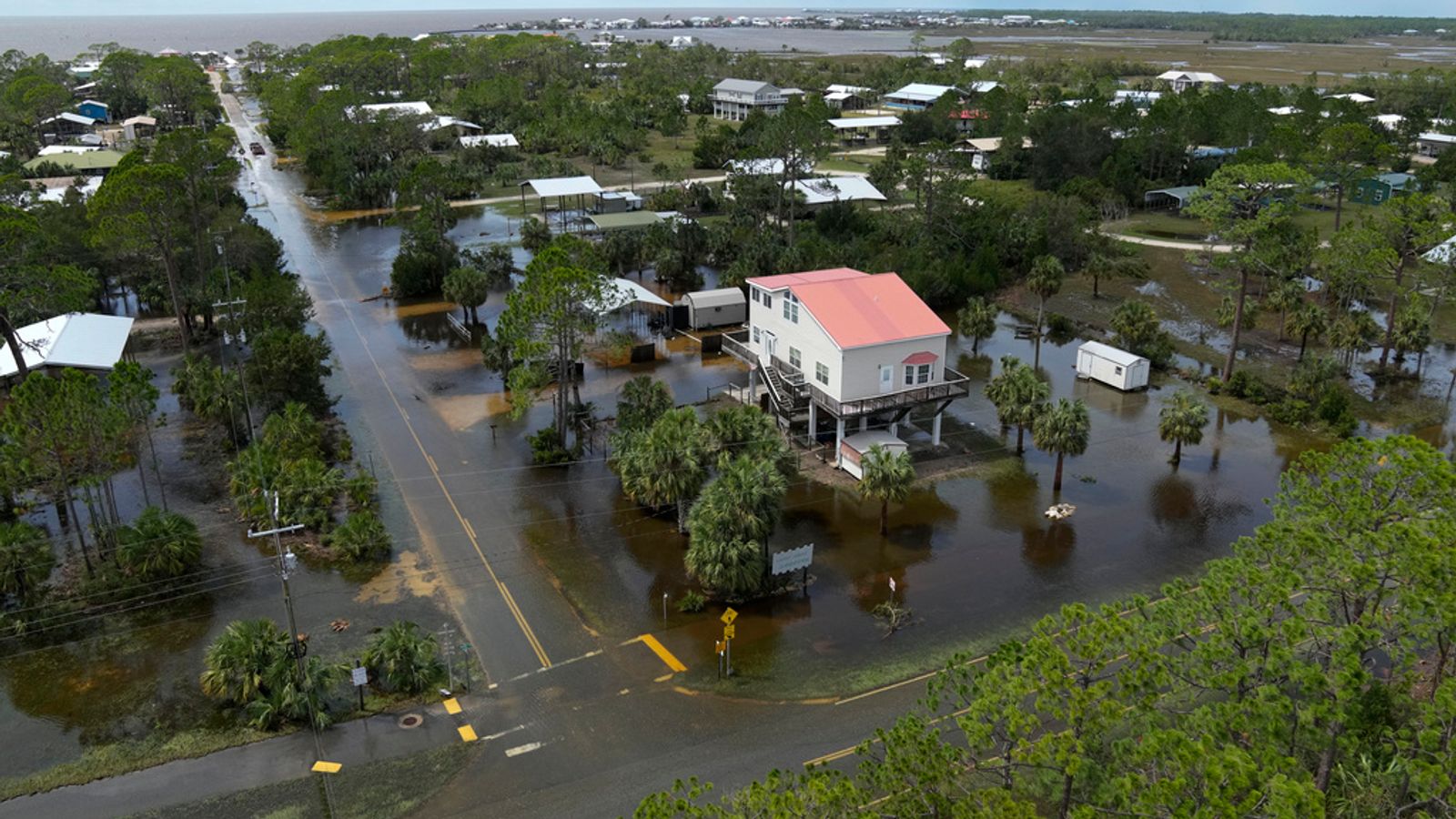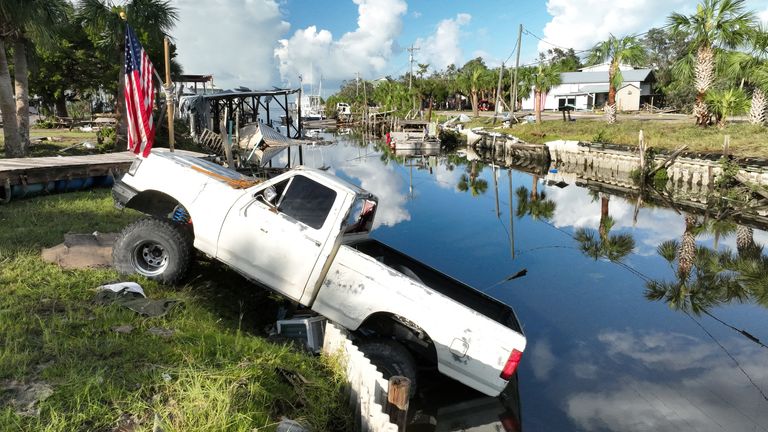Hurricane Idalia may have passed, but a hidden threat lingers in its aftermath.
Florida health officials are warning Labor Day weekend beachgoers in affected areas to be cautious of floodwaters, which may carry Vibrio vulnificus, a rare and potentially lethal flesh-eating bacterium.
Florida’s Health Department emphasises the importance of treating this threat seriously, comparing it to respecting alligators and rattlesnakes.
The risk of Vibrio infections surged in coastal regions of Florida, Georgia, and the Carolinas due to Idalia’s storm surges mixing salty seawater with heavy rainfall, creating ideal conditions for the bacteria to thrive.
V vulnificus, among various Vibrio types, is the most dangerous and infects about 80,000 individuals in the US annually, resulting in approximately 100 deaths, with numbers rising after hurricanes.
The rare and potentially deadly type of flesh-eating bacterium “shouldn’t be taken lightly,” Florida Health Department press secretary Jae Williams told Sky News affiliate NBC News. “It needs to be treated with proper respect – the same way we respect alligators and rattlesnakes.”
Infections typically occur through skin cuts while wading through contaminated water, causing rapid tissue destruction.
Immediate medical attention and antibiotics are crucial, as Vibrio is among the fastest-growing bacteria. In severe cases, amputation may be necessary, and fatalities can occur within a day of exposure.
Vibrio bacteria like to live in places where warm, salty seawater mixes with freshwater, like estuaries and inlets, and hurricanes can make these conditions happen.
During Hurricane Idalia, the storm surge pushed salty seawater onto land, and then it rained a lot.
“The rainwater, being freshwater, dilutes the seawater and brings the salinity down,” said James Oliver, a retired professor of microbiology at the University of North Carolina, Charlotte. That mixture creates the perfect condition for the bacteria to thrive and spread.
Consuming raw oysters represents another infection route, as oysters filter water through their gills, potentially containing Vibrio.
Read more:
Hurricane Idalia wrecked Cedar Key – but people will brave destruction to live in paradise
Tree falls on Ron DeSantis’ house moments after he warned people to stay safe
Among various types of Vibrio, V vulnificus is the most harmful. These bacteria infect around 80,000 people in the United States each year, resulting in approximately 100 deaths, according to the Centers for Disease Control and Prevention.
Warmer waters have expanded the geographic reach and frequency of Vibrio cases, increasing the risk for people along the southeastern US coast, including states like Alabama, Florida, Georgia, Louisiana, and Mississippi.
Cook your oysters and cover cuts and sores
To avoid contracting the infection, experts advise cooking oysters to destroy the bacteria. But for beachgoers, there is likely no way to avoid Vibrio.
“It is virtually guaranteed that if you wade into coastal waters this weekend, you will encounter such bacteria,” Mr Oliver said. “While that is a scary statement, it is important to understand that the risk for becoming sick from that encounter is extremely low for the vast majority of people.”
If people have open cuts or sores, it’s important to fully cover them before going into brackish water or simply avoid getting in.
“If you’ve got any sort of wound on your leg or develop a wound while you’re at the beach, you really want to try to protect yourself and not expose yourself to water in those cases,” said Dr Rachael Lee, an associate professor in the division of infectious diseases at the University of Alabama at Birmingham.
“If you don’t have wounds, then the risk of wading in the water is practically zero,” she said.


